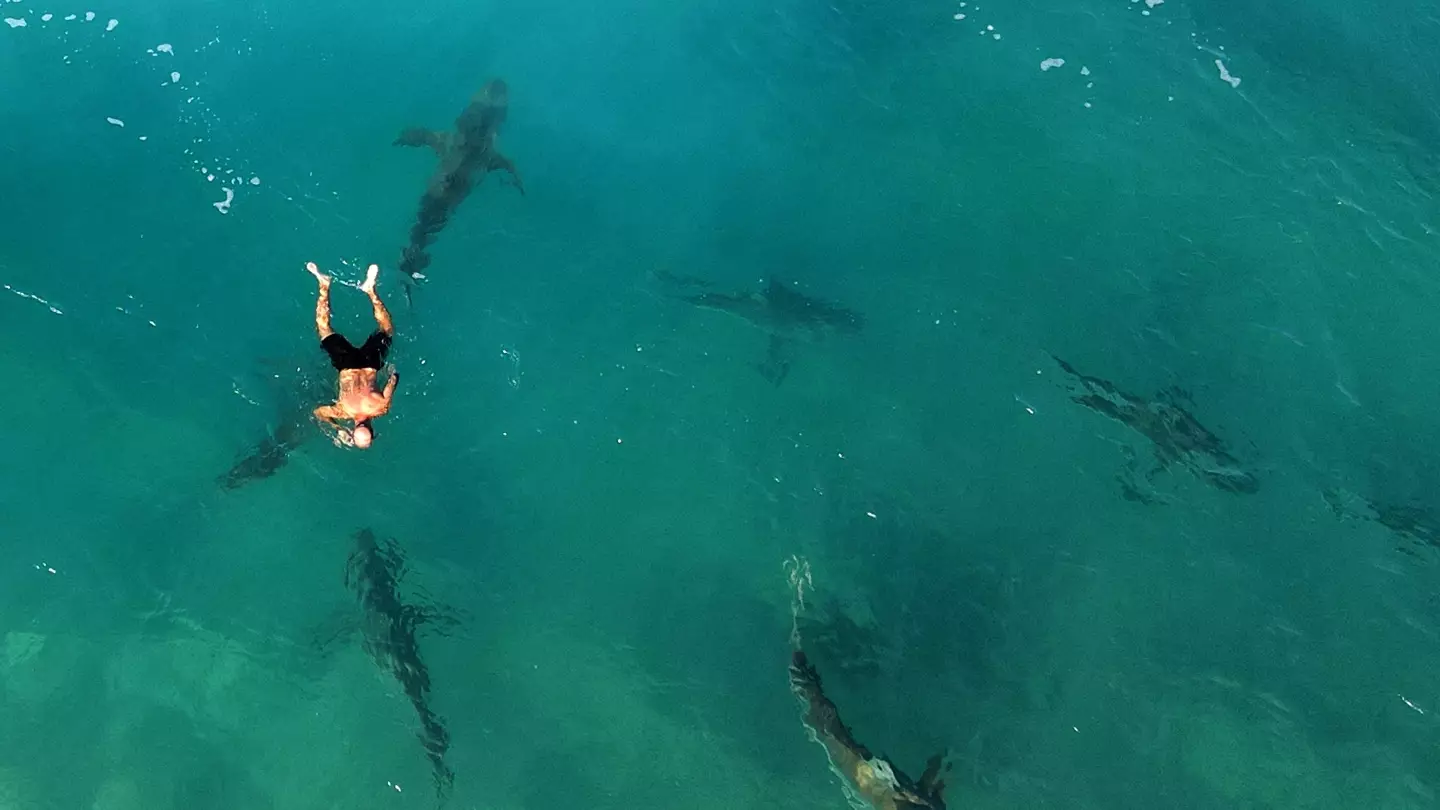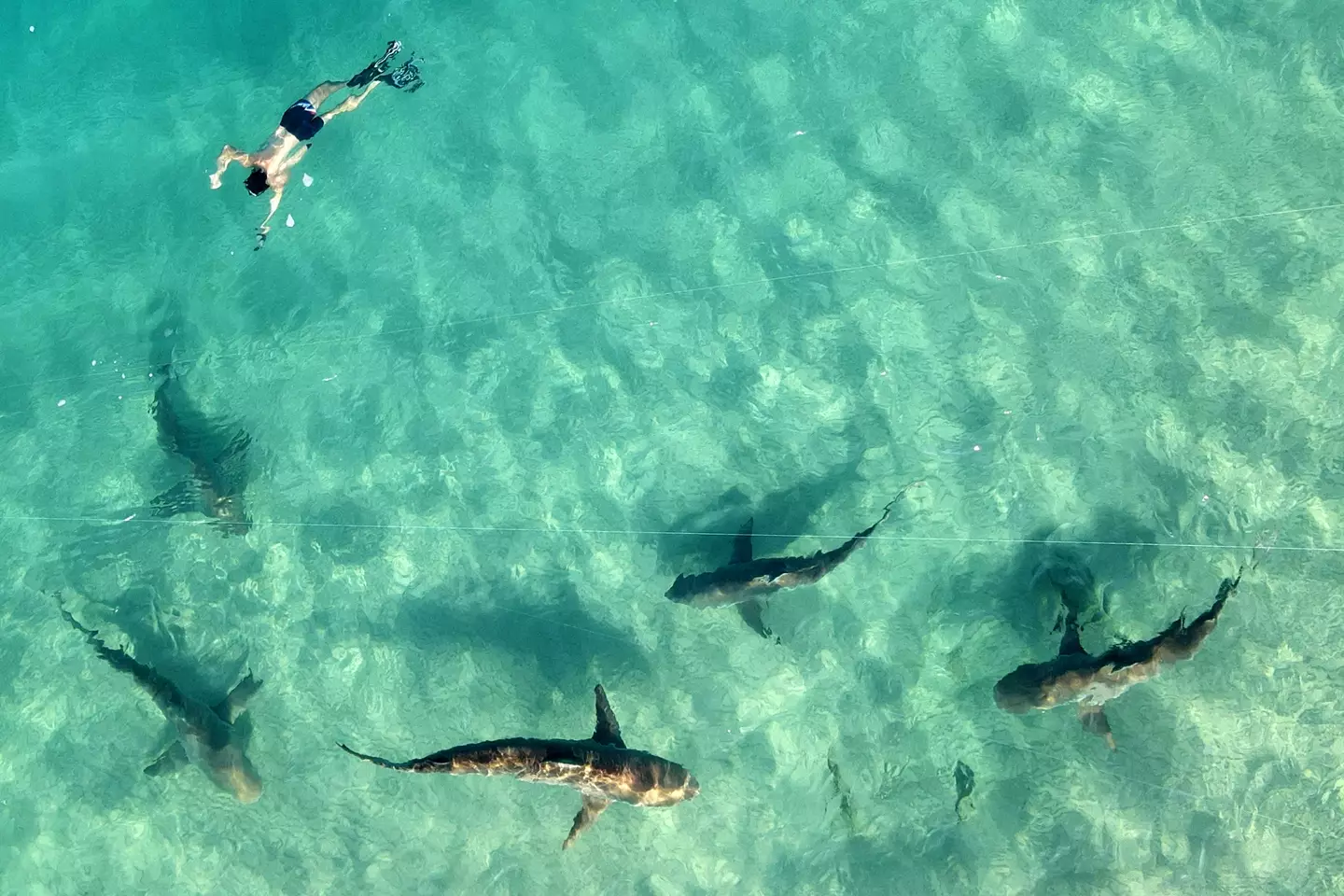
A species of shark previously believed to be harmless has been found responsible for a vicious attack on a snorkeler off the coast of Israel earlier this year.
The 40-year-old male tourist was swimming and filming in the sea at Olga Beach in Hadera on 21 April, when he found himself surrounded by sharks.
Disturbing footage captured by fellow tourists shows the moment the ocean predator starts to circle a group of swimmers before aggressively turning to the man.
Eye-witnesses described the moment the shark lunged at the man's GoPro camera, prompting him to shout 'help, they're biting me!'
Advert
The tourist then disappeared and the water around him began to turn red, before shark fins were spotted on the surface of the waves. Rescue boats arrived quickly but when they searched the water, the man was gone.
In separate mobile phone footage, a man frantically shouted: "Wow, wow, he's with the shark, he’s fighting him. They're eating him, eating the man... Can't see him."
Since the tragic event, researchers have published a report on the vicious attack, with many people surprised to learn the species of the shark involved.
"The day after, searches at sea recovered human remains (in very small quantities) that allowed the forensic confirmation of the victim’s identity, but also led to the conclusion that he had been devoured by ‘several’ sharks during this incident," researchers wrote in the report published in Ethology, via the Independent.
Alarmingly, the report says this particular attack is the first known incident involving a dusky shark, which previously has no known reports of killing humans.
Researchers have put the incredibly rare nature of the attack down to a combination of factors, such as human error, ecological distortion and animal instinct in the midst of a feeding frenzy. In particular, scientists believe a competitive food environment in these particular waters led to the sharks exhibiting frenzy behaviour when it came to feeding.

"The competition for access to the food resource overrides the species’ usual behaviour, including the intrinsic non-instinctive nature of the (human) prey," they wrote.
"The situation likely occurred via a process of juxtaposition bites, with two distinct motivations: the first, a (probably single) reflex/clumsiness bite driven by food begging, and the second, several predatory bites triggered by a feeding frenzy."
The researchers are now looking into steps that can be taken to avoid further tragedies, with the main aim being to prevent the sharks from needing to resort to 'begging' behaviour.
"The central objective is to eliminate the begging behaviour in sharks, and this can only be achieved by establishing and enforcing a complete and total ban on all artificial feeding of sharks by the public," they wrote.
"Any other measure could be complementary, but undeniably less relevant than this approach."
Topics: Animals, Shark Attacks, Sharks, Israel
